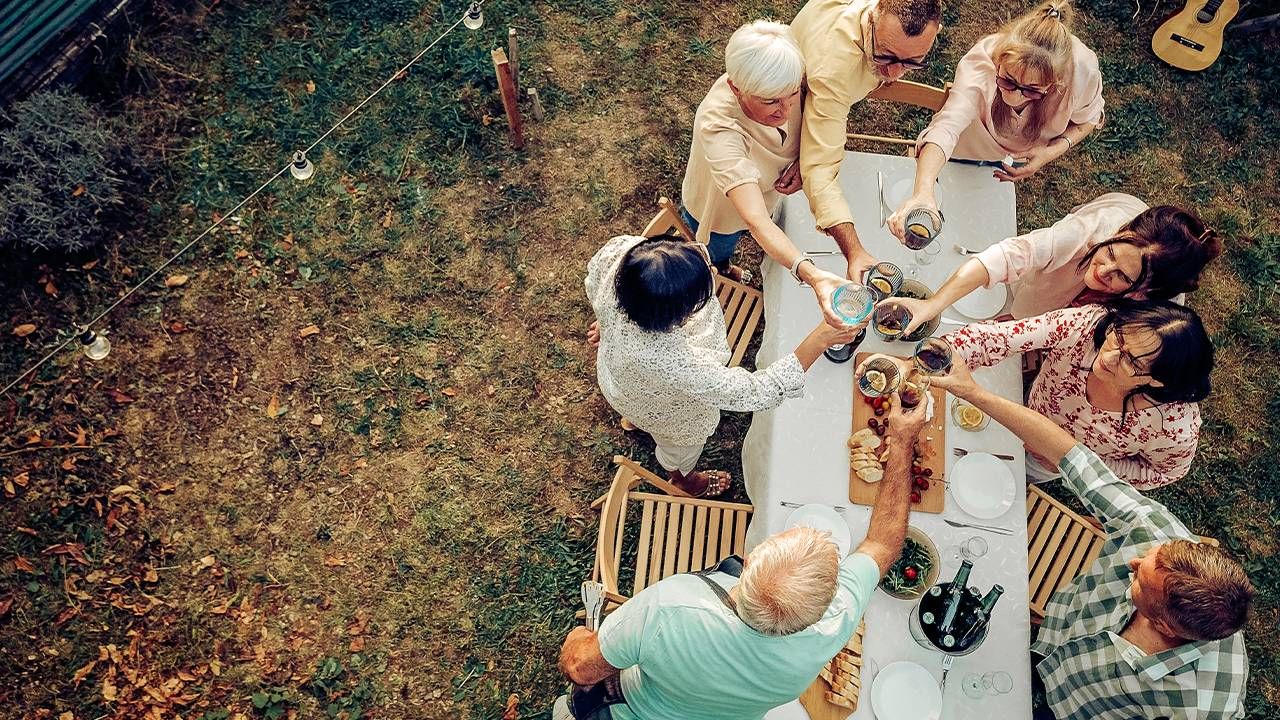Nurturing Our Return Into the Community
Steps to take to overcome the apathy many are feeling and re-engage with others in positive ways
With the spike in the coronavirus delta variant, and a renewed push for masking in some quarters, the return to the "new normal" is less predictable than it was just a few weeks ago. As a result of the unprecedented pandemic shutdown, there are few road markers providing direction to the various aspects of restoration into typical, and effective, day-to-day life.

Fortunately, social science researchers are speaking to the various aspects of evidence-based activities that promote well-being. Psychologist T.J. VanderWeele, in a 2020 article in The Journal of Positive Psychology and Well-being, for instance, reports that most cognitive, behavioral and relational activities can be implemented without professional help.
In times of uncertainty like the current state of the ongoing-pandemic world, we are more prone to focus on life hassles than the good and easy points of the day.
The new term for the best of well-being is flourishing, defined by seeking the good in life and addressing the psychological distress that hinders experience from what is perceived as good. Flourishing activities elevate mood and nurture physical health, easing the chronic stress and burden of the pandemic.
Seeking Optimism
Since collectively we have been dealing with more changes and ambiguity than ever, strategies for reorienting are helpful:
Focus on gratitude. One of the most widely studied of well-being activities involves exercising gratitude. Evidence reported in Psychology Today suggests that simply by writing down three things one is grateful for, three times a week, over the course of one month, the mind becomes focused on what is good in past and present and helps increase happiness, relieve symptoms of depression and improve sleep.
While the research doesn't go so far as to suggest that such an activity will solve complicated problems, it can give a new, strong and optimistic headline to the day. In times of uncertainty like the current state of the ongoing-pandemic world, we are more prone to focus on life hassles than the good and easy points of the day. This exercise helps develop the habit of gratitude.
Carry out regular acts of kindness. Social science research is conclusive: Enacting kindness has significantly positive effects on personal well-being. The strategic activity involves picking one day each week to perform five acts of small, out-of-the-ordinary kindnesses toward others.
Most will find that this takes considerable planning. The results reveal that planning itself and the deliberate intention to do good for others improves a sense of happiness and encourages a dispositional seeking toward the good of others.
Savoring the Good in Life
Known as altruism, this is the belief that the well-being of others is equally, if not more, important than the well-being or survival of the self. Altruism involves selfless acts or undertakings that put the welfare of others before one's own.
Learn to "savor" the good. Researchers F.B. Bryant and J. Veroff, in their 2007 book, "Savoring: A New Model of Positive Experience," describe savoring as the capacity to attend to, appreciate and enhance the positive experience in one's life.
Various strategies and interventions to enhance and promote the savoring experience have been developed, including thinking about positive events, recognizing what is good in the present situation, heightening focus and awareness on positive present experiences and sharing or celebrating a good experience.
The goal of savoring is to become fully immersed in a positive experience. Finding moments to savor throughout the course of an ordinary day has been shown as an easy way to enhance well-being.
How to Counteract Apathy and Depression
Many continue to find themselves more ill-at-ease than they were before the pandemic shutdown. In fact, the term "languishing" has come into favor, as written about in The New York Times, in reference to a state of apathy, listlessnes, and a loss of interest in life.
It's OK to say you're not doing that great and ask for help.
Self-help strategies that can be enacted without professional intervention are essentially oriented toward the good by recovering from what are conceived as three central negative emotions: sadness, in the case of depression; fear, in the case of anxiety and anger, experienced as unforgiveness.
Depression is one of the most common mental health issues. If sad, down, or blue feelings are routinely disruptive to day-to-day living — characterized by numbness, significant changes in eating or sleeping habits, extreme fatigue or recurrent thoughts of death or self-harm — seeking professional help is certainly in order.
Shorter moments and transient episodes of feeling low can be expected as we learn new ways of being in the world. It's OK to say that you're not doing that great and to ask for help. Catering to basic needs, including getting enough sleep, eating healthfully, exercising regularly and staying connected with others can help. Take a back-to-basics approach and develop a stable and predictable routine.
Anxiety is a persistent fight or flight response when no danger is evident. We feel anxious when we are afraid of harm. The threat of COVID-19 infections led to worldwide heightened anxiety. Moving back into the world requires re-assessing personal safety and regaining feelings of mastery.
Even before the pandemic threat, the world was fragmented, polarized, and angry. Research has indicated that forgiving others for wrongs committed is associated with better mental health.
Forgiveness is defined by replacing ill will with good will toward the offender. It is different from condoning, reconciling or not demanding justice. An individual can forgive and hope for the ultimate good of the offender, while still pursuing a just outcome. Social science research says that the process of forgiveness promotes human flourishing and frees the offended from recurrent cycles of anger and rumination.
Feelings of disorder from depression, anxiety, or anger that impair activities of daily living for a period of two weeks or longer should warrant careful consideration for consultation with a mental health professional.


